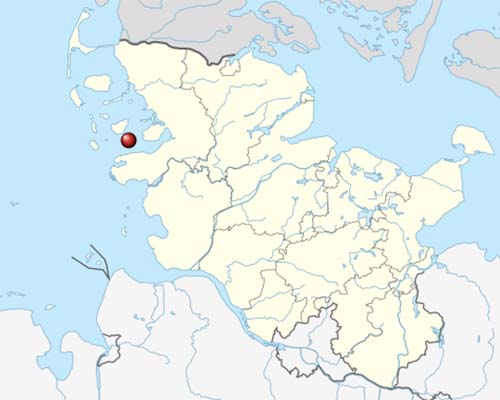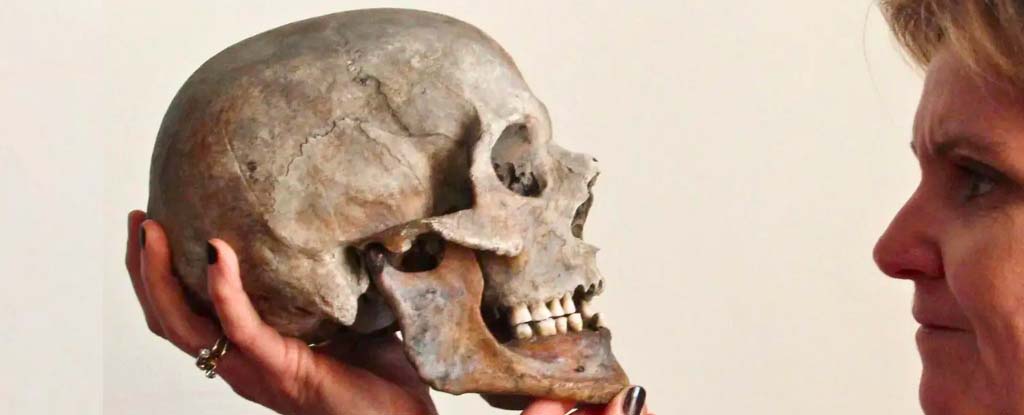

Rungholt was a settlement in North Frisia, in what was then the Danish Duchy of Schleswig. The area today lies in Germany. Rungholt reportedly sank beneath the waves of the North Sea when a storm tide (known as Grote Mandrenke or Den Store Manddrukning) hit the coast on 15 or 16 January 1362.
Today it is widely accepted that Rungholt existed and was not just a local legend. Documents support this, although they mostly date from much later times (16th century). Archaeologists think Rungholt was an important town and port. It might have contained up to 500 houses, with about 3,000 people. Findings indicate trade in agricultural products and possibly amber. Supposed relics of the town have been found in the Wadden Sea, but shifting sediments make it hard to preserve them.
There definitely was a great storm known as the Grote Mandrenke (Store Manddrukning), and sometimes also named after the saint Marcellus, on 15 or 16 January 1362. Estimates put the number of deaths at around 25,000. Possibly 30 settlements were destroyed, and the coastline shifted east, leaving formerly inhabited land in the tidal Wadden Sea.
Sometimes referred to as the "Atlantis of the North Sea", the Rungholt of legend was a large, rich town, with the catastrophe supposedly a divine punishment for the sins of its inhabitants.
Impressed by the fate of the town, the relics, and not least the legends' excessive descriptions, the German poet Detlev von Liliencron wrote the 1882 poem "Trutz, Blanke Hans" about the lost town, which begins: Heut bin ich über Rungholt gefahren, die Stadt ging unter vor sechshundert Jahren. ("Today I traveled over Rungholt; the town sank 600 years ago.").
Local myth has it that one can still hear the church bells of Rungholt ringing underwater when sailing through the area on a calm night. Continue reading

A Legendary Lost City Called Rungholt - Swallowed By The Ocean - Has Been Found Science Alert - June 5, 2023
Archaeologists have mapped out the lost city of Rungholt for the first time.
Legend has it that the once thriving city, which now sits off the coast of northern Germany, was swallowed by the North Sea in a single night following a heavy storm as punishment for its inhabitants' sins.
According to folklore, these sins included things such as drunkenness, impiety, and the flaunting of wealth. So the stories go, the life of abundance led to an immoral life, and the end came around Christmas when a gang of young drunkards tried to force a priest to give a pig the last sacrament at a local inn.
The cleric went to the church and prayed and asked God to punish the young men. He left town the next day, and shortly after, the great storm hit that wiped Rungholt off the face of the Earth.
In medieval legends, the sound of its bell tower could be heard from the depths of the North Sea.
While some historians questioned whether the town ever existed outside myth, new research has uncovered the remains of this "northern Atlantis" in the Wadden Sea, per the report.
Archaeologists from Christian-Albrecht University in Kiel found approximately 1.2 miles (1.9 kilometers) of medieval mounds around an island now known as Südfall after mapping the site with a geophysical survey.
Settlement remains hidden under the mudflats are first localized and mapped over a wide area using various geophysical methods such as magnetic gradiometry, electromagnetic induction, and seismics.
The new findings included a harbor, the foundations of a large church, and drainage systems, according to new research. Investigations into the tidal flats continued to bring to light significant new find" and provided unparalleled insights into the lives of the North Frisian people. But the researchers are working against the clock, as the conditions continually eat away at the remains.